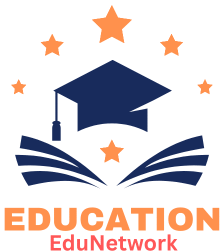The dynamic nature of modern education has substantially expanded job opportunities for educational advisors. The increasing need for curriculum development, personalized learning, and institutional transformation is driving the need for educational consultants in both the public and private sectors. This article delves into the nature of educational consulting, the many work opportunities, the necessary abilities, the sectors that use consultants, and offers guidance on achieving a rewarding career in this field.
What Exactly is an Educational Consultant?
An educational consultant is a professional who, in order to improve educational results and student experiences, provides informed advice to families, schools, and other educational organizations. Curriculum development, teacher training, college admissions, educational technology integration, or policy making might be their areas of expertise.
Educational consultants are in high demand due to the critical role they play in helping companies adapt to changing educational standards and technology.
Educational Consultants Seem to Have More Job Openings Than Other Types of Consultants
For many reasons, educational advisers are in high demand:
-
In response to the rising tide of personalized learning, experts in the field of adaptive learning are in high demand as schools strive to tailor lessons to the unique needs of their students.
-
With the rapid advancement of technology, educational technology integration requires consultants who are well-versed in both pedagogy and technology.
-
Policy Shifts in Education: In order for schools to follow the ever-evolving federal and state education regulations, they need clear guidance.
-
Homeschooling and private schools are on the rise as parents seek advice from professionals about their children’s education.
-
Consultants play an important role in the higher education industry as a whole, helping institutions develop new programs, develop strategies to retain current students, and find new students to enroll.
Because of these changes, educational advisors now have a lot more options when it comes to finding work.
Many Possible Career Paths for Educational Consultants
Among the many possible workplaces for educational consultants are:
1. Consulting for Independent Owners
Freelancing or contract work is offered by a large number of educational consultants who are independent contractors.
-
Seeking advice from experienced adults on college admissions
-
It is mandatory for schools to conduct curriculum audits.
-
Businesses that use instructional technology and are looking for expert guidance on new product development
Though it requires strong marketing and networking skills, independent consulting offers independence and a diverse clientele.
2. Local Educational Authorities and Public Schools
School systems often use educational consultants to help with things like improving lessons, creating new benchmarks, and fostering professional development. This work may be part-time or full-time, and it would revolve around:
-
Designing and assessing educational programs
-
Teacher preparation and evaluation
-
Special education programs
Benefits of working in public school include job stability and the opportunity to impact huge student groups.
3. Colleges and Universities
For assistance with academic program evaluations, diversity initiatives, retention strategies, and admissions processes, colleges and universities often hire consultants. This kind of consultant often focuses on:
-
Enrollment management
-
Student success programs
-
Adherence to certification
Higher education consulting requires knowledge of regulations pertaining to postsecondary education as well as student services.
4. Companies Specializing in Educational Technology and Publishing
Businesses that provide educational platforms, software, and content often employ consultants to double-check their products against customer requests and academic requirements. Positions might include:
-
Consultant for new product creation
-
Content reviewer
-
Trainer for Educational Staff
Competence in business, technology, and education are all required for this position.
5. Nonprofits and Government Agencies
Nonprofits and government organizations focused on education policy, equity, and reform often hire consultants to conduct research, evaluate programs, and provide recommendations for improvement. It is common for these roles to emphasize:
-
Analysis of data and reporting
-
Formulation of regulations
-
Engaging with the neighborhood
Consultants in this area help bring about systemic change on a local, state, or federal level.
6. Offering Consultancy Services for Global Education
Because of globalization, there is a rising need for consultants who can counsel schools, governments, and international students. Possible job openings include:
-
Counseling students on their study abroad needs
-
Aiding multinational educational institutions in meeting global standards
-
Aiding in the development of educational programs on a worldwide scale
Being well-versed in other educational systems and possessing cultural competence are necessary qualifications for this specialism.
Essential Skills for Educational Consultant Positions
A successful educational consultant will have the following skills and credentials:
-
An Impressive Academic Record: Typically, a master’s degree or higher in counseling, teaching, administration, or a related field is required.
-
Subject Matter Expertise: Curriculum development, special education, and the incorporation of technology are just a few areas where specialization pays dividends.
-
Competence in Research and Analysis: The ability to assess programs, examine data, and make recommendations supported by evidence.
-
Expertise in Interpersonal and Verbal Communication: Consultants must be able to effectively convey their views to a wide range of stakeholders.
-
Project Management: The ability to plan ahead is essential when dealing with several clients and responsibilities.
-
Flexible Thinking: Consultants in the field of education must be able to adapt to new situations by being abreast of new regulations and best practices.
Certifications from organizations like NACAC, which stands for the National Association for College Admission Counseling, or other technological resources may also open doors to better employment prospects.
Finding Educational Consultant Jobs: A Guide
Ways to locate and get employment in educational consulting include:
1. Making Relationships
Join professional organizations like the Independent Educational Consultants Association (IECA), network at conferences, and build your LinkedIn profile to meet prospective clients and employers.
2. Online Resources for Employment
Take a look at sites like:
-
Job Board
-
Work in Academic Administration
-
EdSurge (for tech-related teaching jobs)
On the job boards for nonprofits and specialized education, you may see several ads for consulting roles.
3. Open and Honest Dialogue
Send a tailored portfolio and resume out to schools, districts, and potential employers to showcase your relevant skills.
4. Freelancer Platforms
Freelancer and Upwork are two examples of platforms where independent consultants may start attracting clients.
5. Professional Recognition and Lifelong Learning
Acquiring more training or certifications may lead to higher-level career opportunities, in addition to sending a message of competence to employers.
Salary Expectations for an Educational Consultant
Compensation is highly dependent on factors such as years of experience, area of expertise, and kind of workplace. In light of the fact that:
-
Consultants at the starting level may earn $40,000 to $60,000 per year.
-
Earnings of $80,000 to $120,000 or more per year is possible for expert consultants holding leadership roles in niche industries.
-
The income of independent consultants varies with their clients and the rates they charge.
While working for the government often comes with benefits and job security, consulting for private companies may provide more freedom and even higher pay.
Potential Roadblocks to Educational Consultant Employment
The following challenges must be considered despite the field’s promise:
-
Competition: Differentiation is key since many qualified teachers seek out consulting jobs.
-
Unpredictable Income: The need for freelance experts could shift as time goes on.
-
Staying Current: Due to the ever-changing standards of education, continuous learning is essential.
-
Striking a Balance Between Client Expectations: Meeting a range of demands requires flexibility and clear communication.
Future Employment Opportunities for Educational Consultants
Education is undergoing rapid transformation as a result of emerging pedagogies and technological advancements, which bodes well for educational consultants. Promising developments like competency-based evaluations, inclusive education, and AI-driven learning will increase need for expert guidance.
Consultants skilled in digital technology and innovative domains will find increasing demand in domestic and international markets.
Conclusion
The complex needs of today’s schools are mirrored in the wide range of educational consulting jobs available. Consultants have a crucial role in shaping the future of education, whether they are employed by districts, universities, or private companies. By developing their expertise, making strategic connections, and monitoring developments in the field of education, aspiring consultants may build rewarding careers that impact people all around the world.
If you are willing to work quickly and have a passion for education, educational consulting may be the perfect career path for you.
